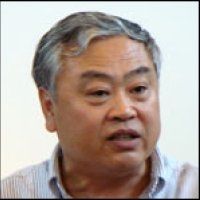The Last Celestial Empire: Mao Zedong, Kim Il-sung and Sino-North Korean Relations

How stable, close and special is the Sino-North Korean relationship? What was the core of Mao’s North Korean policy? And how do we best conceptualize and assess PRC-DPRK relations? Based on new Chinese documentation, China’s leading Cold War historian, Professor Shen Zhihua (East China Normal University), will explore the Cold War era roots of a relationship that remains central to U.S. policy concerns in Northeast Asia. A panel of experts will discuss the Beijing-Pyongyang connection and its legacies for today.
Zhihua Shen is distinguished university professor of history and director of the Center for Cold War International History Studies at East China Normal University in Shanghai, China. The author of more than 10 books and 90 articles on the Korean War and Sino-Soviet relations (in Chinese, Russian and English), he is the preeminent scholar of the Cold War in China. His most recent English language books include: Mao, Stalin and the Korean War: Trilateral Communist Relations in the 1950s (2012); After Leaning to One Side: China and Its Allies in the Cold War (2011) with Danhui Li. He is a former Wilson Center Public Policy Scholar.
Panelists:
Robert Daly, Director, Kissinger Institute on China and the United States, Woodrow Wilson International Center for Scholars;
James Person, Coordinator, Hyundai Motor–Korea Foundation Center for Korean History and Public Policy; Deputy Director, History and Public Policy Program, Woodrow Wilson International Center for Scholars;
Jonathan Pollack, Senior Fellow in the John L. Thornton China Center and the Center for East Asia Policy Studies at the Brookings Institution.
Moderated by:
Christian F. Ostermann, Director, History and Public Policy Program, Woodrow Wilson International Center for Scholars.
Speaker

Director, Center for Cold War International History Studies, East China Normal University (ECNU), Shanghai, China
Hosted By

Cold War International History Project
The Cold War International History Project supports the full and prompt release of historical materials by governments on all sides of the Cold War. Read more


Indo-Pacific Program
The Indo-Pacific Program promotes policy debate and intellectual discussions on US interests in the Asia-Pacific as well as political, economic, security, and social issues relating to the world’s most populous and economically dynamic region. Read more


Kissinger Institute on China and the United States
The Kissinger Institute works to ensure that China policy serves American long-term interests and is founded in understanding of historical and cultural factors in bilateral relations and in accurate assessment of the aspirations of China’s government and people. Read more


History and Public Policy Program
A global leader in making key archival records accessible and fostering informed analysis, discussion, and debate on foreign policy, past and present. Read more


North Korea International Documentation Project
The North Korea International Documentation Project serves as an informational clearinghouse on North Korea for the scholarly and policymaking communities, disseminating documents on the DPRK from its former communist allies that provide valuable insight into the actions and nature of the North Korean state. Read more


Hyundai Motor-Korea Foundation Center for Korean History and Public Policy
The Center for Korean History and Public Policy was established in 2015 with the generous support of the Hyundai Motor Company and the Korea Foundation to provide a coherent, long-term platform for improving historical understanding of Korea and informing the public policy debate on the Korean peninsula in the United States and beyond. Read more
